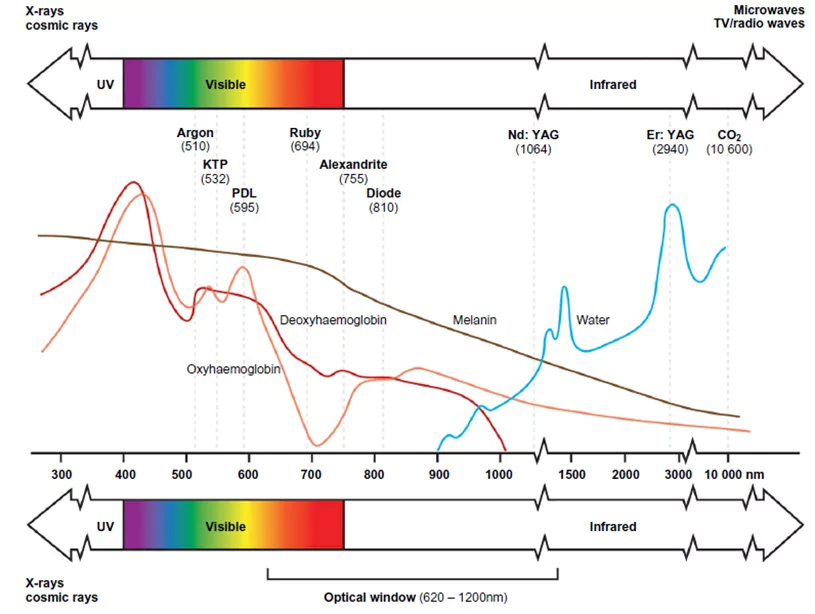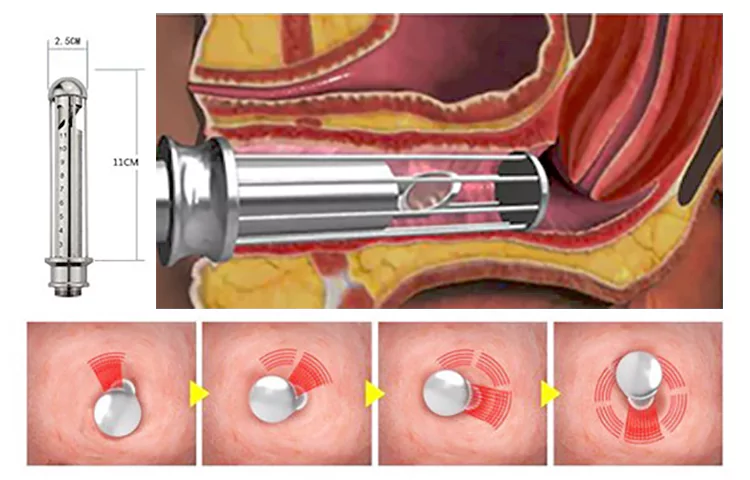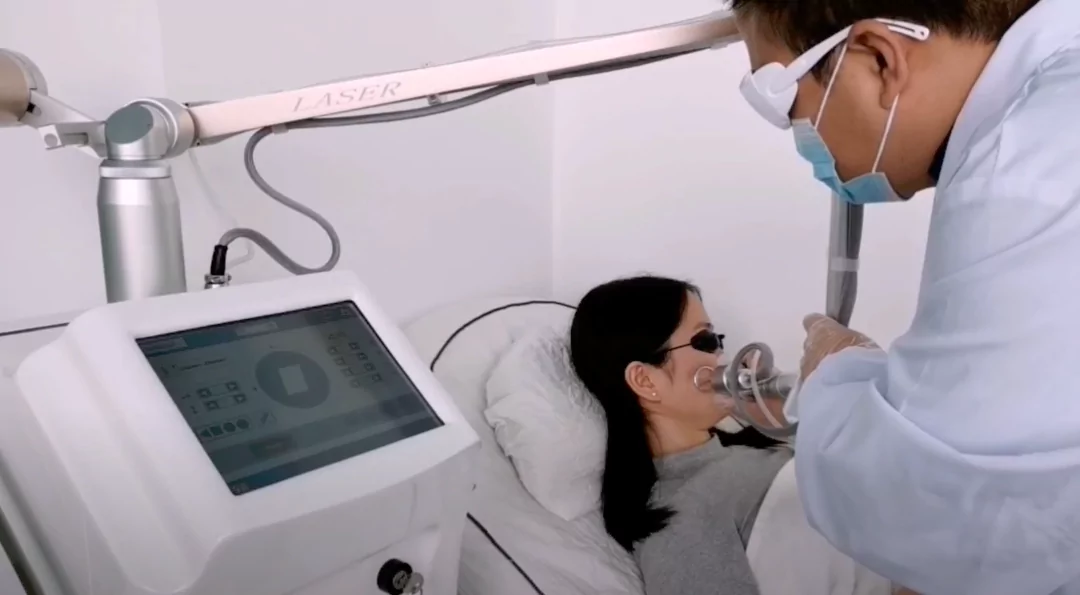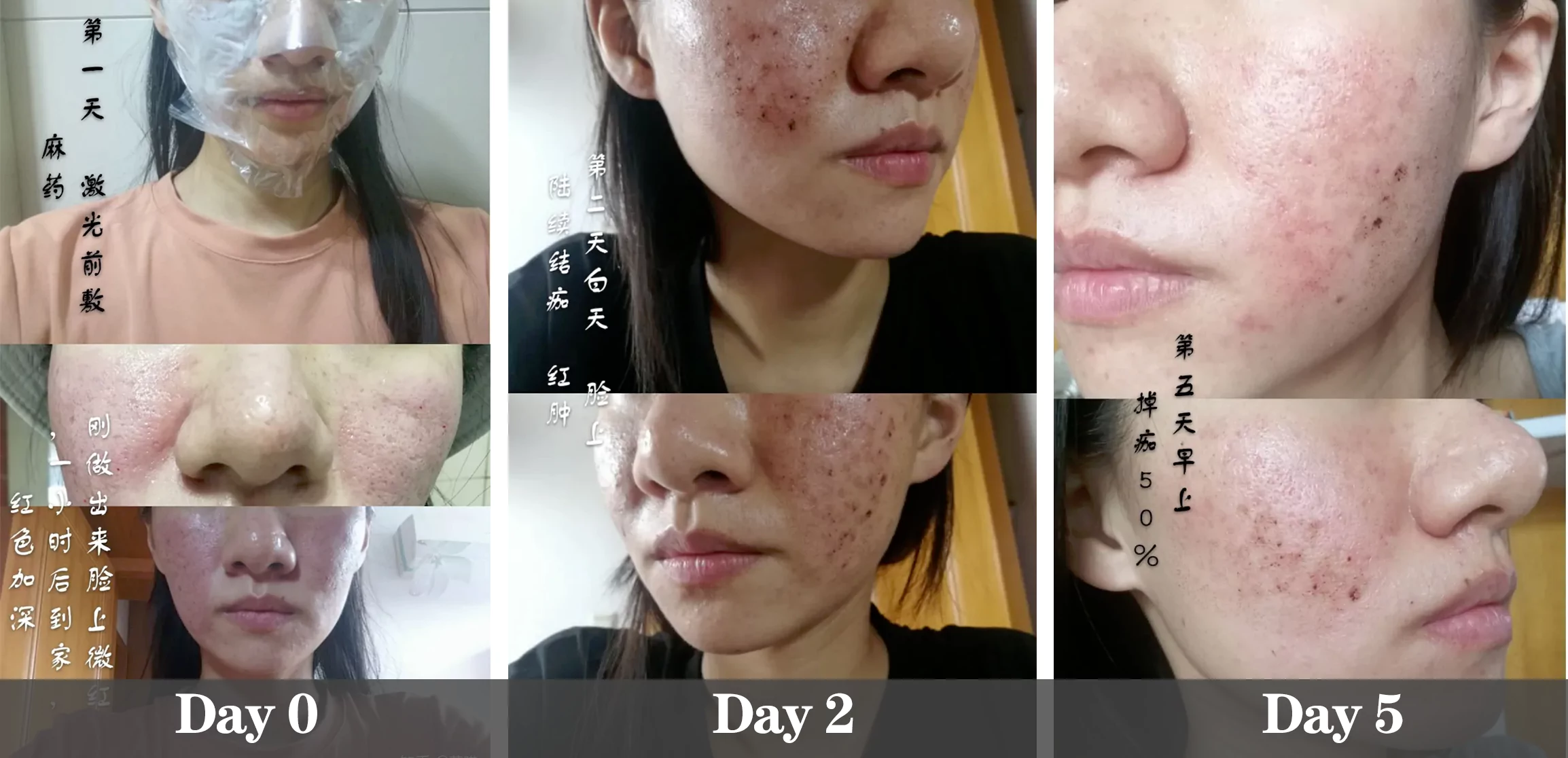Today, I want to talk about the classic aesthetic medical treatment – Carbon Dioxide Fractional Laser treatment!
The development process of CO2 lasers!
The first CO2 laser was born in 1964.
It began to be used clinically in 1967.
In 1994, Coherent Company (now Lumenis Company) developed pulsed CO2 lasers.
The first pulsed CO2 laser was launched in 1998.
The first fractional CO2 laser was launched in 2005.
The first CO2 laser has a history of 58 years, a veteran in the field of optoelectronics. Until today, both the technology and clinical effects of the machines have made tremendous progress. The effect of CO2 lasers has also been widely recognized over the years.
Nowadays, both private aesthetic institutions and public hospital dermatology and aesthetic departments are basically equipped with CO2 laser devices.So we can say that CO2 laser is a quite popular laser treatment.
Key points:
- Describe the long history and advancement of CO2 laser technology
- Explain that CO2 laser effects have been proven over 58 years
- Mention that both private and public medical facilities use CO2 laser
- Conclude that CO2 laser is a popular aesthetic treatment option
The principle of Carbon Dioxide Fractional Laser
In order to talk about lasers, we must refer to this treasure chart, as it is the theoretical foundation of all laser devices.
The blue curve in the diagram shows the absorption curve of water for laser light, with two absorption peaks at 2940nm and 10600nm. 2940nm is Erbium laser, which we will discuss in detail in another article.
10600nm is the wavelength of CO2 lasers, which has never changed. Only the technical performance parameters like output mode, power and pulse width have changed.
Therefore, the effect of CO2 lasers on tissue is the effect on water.
I can summarize the main principles in three parts:
Epidermal peeling and reconstruction
When the energy density and pulse width of CO2 lasers reach certain values, a single CO2 laser pulse can peel off and vaporize 20um of skin tissue.Stimulate collagen neogenesis
By emitting laser light in a scanning fractional pattern, a burning zone with laser acting points and intervals will form on the epidermis. The laser can penetrate directly to the dermis at each point, instantly vaporizing epidermal tissue while stimulating collagen regeneration and activating biological reactions that repair and rearrange collagen fibers.Cause collagen fiber contraction
Collagen fibers will contract by about one third under the action of lasers, achieving a tightening effect.
Application of CO2 Laser
Due to its early adoption, CO2 lasers are now used not only in aesthetics but also in fields like surgery and gynecology as routine treatments.
Skin Rejuvenation
The most widely applied field in aesthetic is dermatology skin rejuvenation treatment. Before fractional technology was applied, CO2 lasers were used for full layer epidermal reconstruction and total face lifting. However, Asian skin types III-IV are prone to inflammatory hyperpigmentation, so full face peeling and lifting work better for European groups.
Now that fractional technology has matured, Asian doctors have started to explore more clinical applications of fractional CO2 lasers. The most common usage is for acne scars, light rejuvenation effects are also good.
Gynecology
About decades ago, CO2 lasers developed a gynecological handpiece and were first applied in gynecology abroad, specially solving some pathological postpartum issues like stress urinary incontinence and Y-canal laxity. The clinical data seems satisfactory. However, it is difficult to obtain first-hand data from abroad now. Domestic manufacturers have also become overly commercialized, so the authenticity of data provided is difficult to distinguish. But one confirmed point is that after the machines arrived domestically, they did not seem to popularize in gynecology, instead, aesthetic medicine promoted intimate CO2 lasers, crediting China’s large number of beauty practitioners who packaged intimate lasers as high-end aesthetic projects,endlessly exaggerating treatment effects, deviating from the original research intention.
Popular Fractional CO2 Laser in the market
It seems that every industry has such a problem, where the prices of the same type of goods can vary greatly from high to low. The same goes for CO2 laser devices. The cheap ones can be as low as $1,000, while the expensive ones can cost over a hundred thousand dollars. Of course, we won’t consider the $1,000 laser devices.
Now, I will list the CO2 devices commonly seen on the market, in no particular order.
Lumenis UP
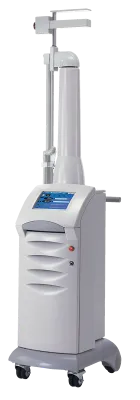
Due to its exorbitant price, it is difficult to find this device in private institutions. Most of the installations of UP in China are found in public hospitals.
Lumenis Acupulse
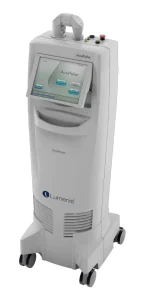
Candela CO2RE
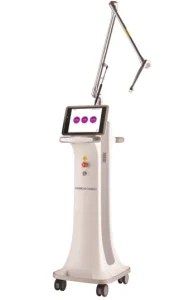
Lutronic Mosaic eCO2P
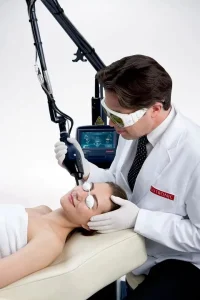
Stelle CO2
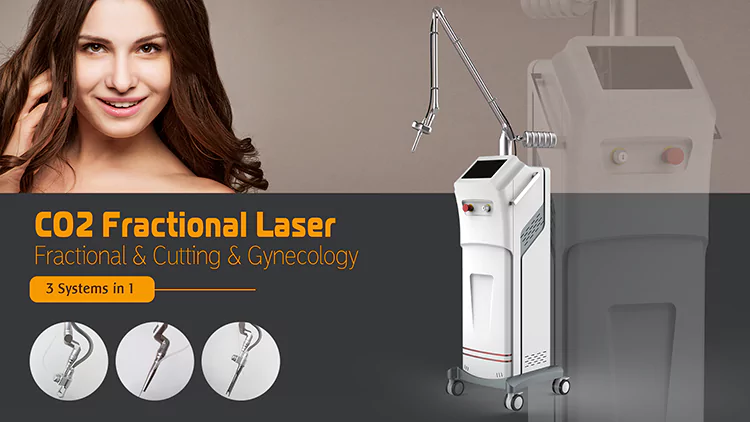
Cost of Fraction CO2 Laser Treatment
| Model | Treatment Cost |
| UP | 550-850 USD |
| Acupulse | 350-450 USD |
| Candela CO2RE | 350-450 USD |
| Lutronic eCO2 | 350-700 USD |
| Stelle CO2 | 150-200 USD |
The reference prices I provide here are for full-face CO2 fractional laser treatments. The prices at public hospitals are generally higher compared to private hospitals, and there is usually no room for negotiation. On the other hand, private hospitals often have various promotional activities, resulting in more affordable prices when calculated.
CO2 Laser Treatment Procedure
How it feels by CO2 Laser treatment?
Pain – Yes, there is pain during the treatment, even with the application of anesthesia. The pain can be quite intense, especially towards the later stages, as the energy accumulates gradually beneath the skin.
Heat – After the treatment, the entire face can feel hot and burning for at least half an hour. It is important to apply cold compresses during this time to ensure that the surface skin is not burned by the heat from underneath.
Recovery process
Around 3 days after the treatment, scabs will start to form, and they will typically peel off within 5-7 days.
However, some individuals may experience slower metabolism or receive higher treatment energy, resulting in scab formation lasting 7-10 days, with the scabs peeling off only after two weeks. As long as no blisters occur, there are generally no significant issues.
CO2 Laser Skin Resurfacing Effect

Important reminder
CO2 fractional laser treatment is different from other non-invasive lasers as it involves ablative therapy. Therefore, it is crucial to strictly protect the treated area from sun exposure after the procedure. Personally, I believe that physical sun protection measures are superior to any sunscreen creams.

